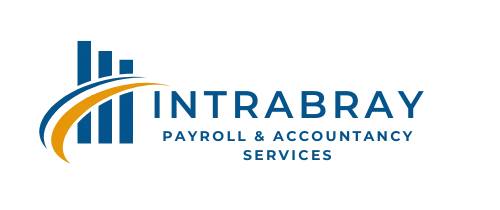As we advance into 2024, the role of local accountants is more crucial than ever. Whether you’re a small business owner, a freelancer, or someone managing personal finances, finding the right local accountant can significantly impact your financial health. Here’s a guide to help you find the best local accounting services in your area this year.
Look for Specialization
When searching for a local accountant, one of the first things to consider is their specialization. Accounting is a broad field, and different accountants have expertise in various areas. Here are a few types of specializations you might encounter: Small Business Accounting: Ideal for entrepreneurs and small business owners who need help with bookkeeping, tax preparation, and financial planning. Tax Accountants: Experts in navigating tax laws and maximizing deductions to ensure you’re compliant and taking advantage of all available tax breaks. Forensic Accountants: Specialize in investigating financial discrepancies and fraud, crucial for businesses or individuals who suspect financial misconduct. Certified Financial Planners (CFPs): Focus on long-term financial planning, including investments, retirement planning, and estate planning. Make sure the accountant you choose has experience in your specific area of need.
Check Qualifications and Credentials
In the realm of accounting, credentials matter. Ensure your potential accountant is certified and holds relevant qualifications. Key credentials to look for include: Certified Public Accountant (CPA): Indicates a high level of expertise and adherence to professional standards. Enrolled Agent (EA): A tax specialist authorized by the IRS to represent taxpayers. Chartered Accountant (CA): Common in other countries but signifies a high level of training and competence. Verify their qualifications and check if they’re in good standing with relevant professional bodies.
Thoroughly checking the qualifications and credentials of a local accountant is essential to ensuring that you choose a competent and trustworthy professional. By verifying certifications like CPA, EA, CA, and others, as well as examining their membership in professional organizations and their disciplinary history, you can make an informed decision and select an accountant who meets your financial needs and maintains high professional standards.
Read Reviews and Ask for References
Reputation is a strong indicator of reliability. Look for online reviews on platforms like Google or Yelp to get a sense of the accountant’s track record. Additionally, ask for references from past or current clients. This can provide valuable insights into their working style, reliability, and effectiveness.
Assess Communication and Availability
Effective communication is essential for a successful accountant-client relationship. Choose someone who is approachable, responds promptly to inquiries, and is willing to explain complex financial concepts in a way you understand. Also, consider their availability. You want an accountant who can offer timely advice and support, especially during crucial financial periods such as tax season.
Assessing communication and availability is not just about finding someone who is easy to reach but about ensuring that your accountant is a proactive, clear, and reliable partner in managing your finances. Effective communication and accessible support can significantly enhance your experience and contribute to better financial outcomes. By prioritizing these aspects in your search for a local accountant, you can build a strong, productive relationship that supports your financial goals throughout the year.

Evaluate Technology and Tools
In today’s digital age, technology plays a significant role in accounting. Ensure your local accountant uses up-to-date accounting software and technology to streamline processes and ensure accuracy. Tools like cloud-based accounting platforms can also make it easier for you to access your financial information and collaborate with your accountant remotely if needed.
Accounting Software Proficiency
A modern accountant should be proficient in using advanced accounting software. Popular platforms like QuickBooks, Xero, and Sage offer robust features for managing finances, tracking expenses, generating reports, and more. Ask potential accountants about their preferred software and how they utilize it to streamline accounting processes. Their proficiency with these tools can significantly impact the quality and timeliness of their services.
Cloud-Based Solutions
Cloud-based accounting solutions have become increasingly important for remote access and real-time collaboration. These platforms allow both you and your accountant to access financial data from anywhere, at any time, with internet access. This can be particularly useful for reviewing financial statements, tracking transactions, and making adjustments without the need for face-to-face meetings. Inquire about whether the accountant uses cloud-based tools and how they manage data security in these environments.
Integration Capabilities
Integration with other financial tools and systems is a significant advantage. Many businesses use a combination of software for various functions—such as payroll, inventory management, and customer relationship management. Ensure that your accountant’s tools can integrate seamlessly with these systems to avoid data silos and reduce manual entry errors. This integration can streamline your operations, enhance data accuracy, and provide a more holistic view of your financial health.
Data Security and Privacy
Given the sensitive nature of financial data, data security should be a top priority. Confirm that the accountant employs robust security measures to protect your information. This includes using encryption technologies, secure data storage solutions, and adherence to best practices in cybersecurity. Additionally, check if they have protocols in place for data backup and recovery in case of system failures or breaches.
Automation and Efficiency
Automation tools can significantly enhance efficiency by reducing repetitive tasks and minimizing errors. Ask potential accountants about their use of automation for processes such as invoice generation, expense tracking, and reconciliation. Automated systems can save time, reduce human error, and ensure that your financial records are always up-to-date.
Consider Fees and Billing Structure
Understand the fee structure before committing to an accountant. Some accountants charge a flat fee, while others bill by the hour. Make sure the fees are transparent and align with the services offered. Discuss potential additional costs for services beyond the standard offerings to avoid surprises.
By carefully considering the fees and billing structure, you can make a well-informed decision that aligns with your financial needs and ensures a positive working relationship with your local accountant.
Personal Compatibility
Finally, personal compatibility can greatly influence the effectiveness of your working relationship. Choose an accountant who you feel comfortable with and who understands your financial goals.
Personal compatibility with your accountant is a key factor that can influence the success of your financial management. It impacts trust, communication, and the overall effectiveness of the professional relationship. By carefully assessing personal compatibility through consultations, clear communication, and evaluating their approach to client relations, you can find an accountant who not only meets your technical needs but also aligns well with your personal or business goals. Ultimately, a good personal fit will help ensure a smooth and productive partnership, leading to better financial outcomes and a more positive experience overall.
Conclusion
Finding a reliable local accountant in 2024 is crucial for both personal and business financial health. With the ever-evolving landscape of tax laws and financial regulations, partnering with a knowledgeable accountant can help you navigate these complexities efficiently. Intrabray, located in Cannock, stands out for its expertise and personalized service, making it an excellent choice for anyone seeking tailored financial solutions.
Whether you’re a small business owner or an individual needing assistance with tax planning, Intraday offers the experience and dedication necessary to meet your needs. Investing in professional accounting services not only ensures compliance but also provides peace of mind, allowing you to focus on what truly matters to you. Explore how Intrabray can support your financial goals and enhance your overall financial strategy today.
